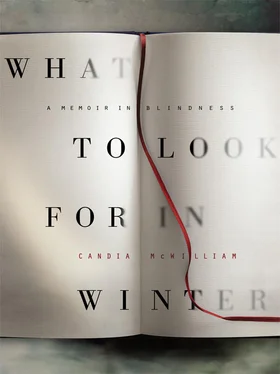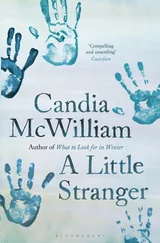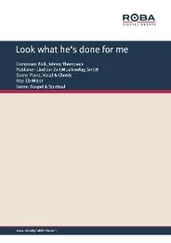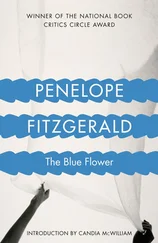When the three were small enough and allowed me to do it, I dressed them alike. Oliver is to this day very brave about this, though he will touch lightly on his determination never to wear quite as much pink as his mother introduced into his early sartorial exposure.
Frequently and especially at birthdays, we went to Farleigh or Quentin and Annabel came to us with their new baby Rose, an individual of early drollery and beauty. The four, apart from one short fracas when Minoo annoyed Rose at Farleigh by telling her that her bunk bed was a frigate in full sail, were as close as close.
‘It’s not,’ she said, ‘it’s a bunk.’
Something has gone wrong with my listening patterns. When first I started reading talking books, I gobbled first all my favourites and then those I’d been shy of. In that way I had, although my physical world was becoming distressingly straitened, my fictional world, or rather the worlds I was reaching through fiction; they were rich, orderly, coherent and bottomless, so that, for example, I remember a weekend of real physical discomfort and fear, but within it, telling human truths and diverting me from myself, lay The Mill on the Floss. Even through that patchy weekend, I knew that I was still I, because I could feel where George Eliot’s writing was strained, woundingly self-referential, and where it simply spilled out in its beautiful, thoughtful, human reams, as for example when the showy aunt whose name I forget shows off her hats to poor Maggie and Tom’s about-to-be-dispossessed mother.
I seem just now to have run out of reading matter, or at any rate to have lost the road I was following into the great heart of fiction. My new unities are shaken. Over this last weekend I have listened without discipline to a life of the young Stalin, to To the Lighthouse , to The Guermantes Way. I began to attempt to listen to either Hamlet or the Sonnets but the chaotic base I had stirred up for myself made this impossible and instead I seem to have made not a space for unclouded thought but a prescription for damaged sleep and violent dreams. Perhaps it is because I am so often alone that the book within which I am living at any time sets the mental weather and I can do real damage by simple accident or by running out of the steady material of genius that has the capability to crowd out my repetitively cycling thoughts.
The thing is that the steady material of genius, uninterrupted save by my own banal animal life, declares so clearly the gap between its simple exaltation and my crawling haltness. For people who read all the time, reading has a quest to it and I appear to myself, for the time being, to have lost that quest. I do not understand what patterns to make mentally with a cast of books that, although generous, is undoubtedly finite and devoid of, for example, contemporary clutter and the chitter-chatter of magazines and newspapers. I can’t look things up. I can’t reach for the tail of a memory. So much for recalling all the poetry you have ever known when you are in prison.
I must have known that the hardest part of this story to relate would be that of my marriage to and with Fram. Many of the strands that we worked at together with real happiness and perfectionism were in themselves, it is now evident, not good for us. It is only looking back that I can see that where I thought I was doing the gentle, sweet, right thing, I was in fact harming him by feeding that trait he had derived from his mother; not sadism at all, but a cool distaste for weakness. To this day I take very few breaths that are independent of thought of Fram, I take very few decisions that I do not run past the idea of his mind, I feel no experience full or ratified until I have described it to him. He is without doubt the person who knows me best in the world and has the imagination to see in me and care for the fat, pigtailed child lost in books. He is my home. I am homeless.
How does one write about a marriage? I knew what he was thinking about by looking at his face. I found him beautiful, we had countless small overlaps, plots, jokes, habits. I mourn it so much that I do not seem without it to be able to live properly, as I understand it, giving and receiving love within a moral shelter. That there were deep flaws in our marriage we accepted and grew with, like a distorted tree, and I conducted the lightning strike that cleaved us. I loved to think of us as Philemon and Baucis. But I was watering the tree from underground with alcohol and this, while Fram did everything he could to stop it and to understand it, was never as known to him as it was to me. There were the many times I got away with it and if you think you’ve got away with anything you are digging yourself a pit, most especially in a marriage. I felt that if I were thin enough and obedient enough and accepting enough, that eventually my mother-in-law would come to see that I was gentle and trustworthy and good enough for her son. The ‘surg’ might retreat, ‘surg’ being distaste in Gujarati, distaste especially in this case for too-muchness, my nimiety, Fram calls it.
In fact, of course, perhaps because of the alcohol, perhaps because the situation was irredeemable, no good behaviour was ever enough for my mother-in-law. It was probably not even what she wanted. Of course she was right to feel that I was meretricious, because I was changing shape to suit her.
My steadying father-in-law died suddenly on Jersey in the winter of 1992 and Fram flew to be with his mother and sister. On his return after the funeral, he lay on our bed and recounted with clarity the wrapping of his father’s body in white cloth, the holding steady of the chin with a band of white gauze and the days before the funeral during which my father-in-law seemed to exude a sweet scent. I could not have loved Fram more. I still today could not love him more. I love him more every day, as I do my children; it is a growing conversation.
Yet what cracked it? My insistence on surface perfection and my falling far from it? His insistence on surface perfection and my falling even further from that? Our tight closeness? I do not think that our marriage was airless and certainly we had many friends. I have far fewer now. Aloneness and blindness have seen to that. Fram built a beautiful and painterly garden, filled with striped roses, tree peonies and a special tree for the birth of Minoo. Indoors we had made an elegant flat, deeply inhabited by the spirit and works of his mother though it undoubtedly was. I liked that, solicited much of it. The thing is, I thought that I was helping my husband by going along with what his mother wanted of him, and in this I could not eventually have been more wrong.
So it was that I never fussed when my mother-in-law needed Fram at weekends or didn’t include me in family matters. I understood completely that it was cosier for them to speak Gujarati on the telephone as well as being more discreet. I understood very well that it was I that was being excluded and I went along with that because I believed absolutely fundamentally in my own exclusion. I did not think I deserved a place at the table. I was a servant and not a very accomplished one, when it came to comparisons, at that. I suppose that I added to my own distaste for myself that of my now widowed mother-in-law who needed nothing more than her children at her side, and if one of those children were married, well, it was to me, who made a very good job of dismissing my own self. I rubbed myself out.
A healthy person would see that this was the very opposite of what everyone involved might require. During our marriage, I had three novels in my mind whose long period of gestation I was moving through. One, set in a hunting lodge in the Czech Republic, was about children, power and loneliness. It will never get written. One was to be about the consolatory and diverting place that a wife’s girlfriends play in a marriage. I didn’t subscribe to the Anita Brookner theory that no woman is loyal to other women when it comes to men, and I still don’t; though I do believe that female institutions are nastier than male ones, very possibly on account of something like the Brookner-drag. The third novel, which perhaps I now may write since I have at hand what I never thought I would have, its termination, was to be about marriage, specifically about the happiness in marriage that is so far deeper than any I, at least, have found outside it.
Читать дальше











